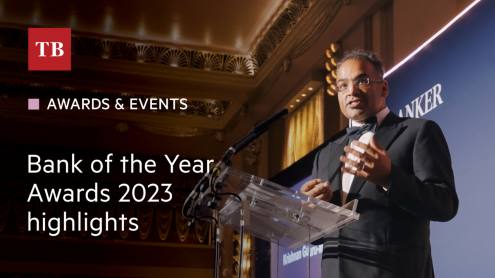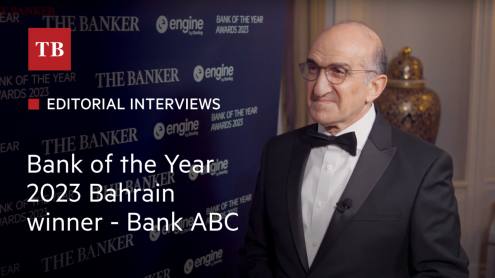CENTRAL BANKER OF THE YEAR GLOBAL & AFRICA:

Charles Soludo Governor, Central Bank of Nigeria
Defying predictions of doom, Nigeria’s banking sector has been transformed, incredibly in just 18 months. Eighty-nine mostly weak, under-capitalised banks have been culled down to 25, achieved without systemic distress or any loss of confidence in the system. And already the dividends of the reform are obvious: competition, more products and services and more (and better) lending to the private sector.
The architect and driver of this consolidation has been Charles Soludo, governor of the Central Bank of Nigeria. In July 2004 he ordered banks to increase their minimum shareholder capital from N2bn ($15m) to N25bn, prompting howls of protest and dire warnings. But for Mr Soludo, formerly economic adviser to the president and the brains behind the government’s widely praised economic reform plan, there was no alternative. If Nigeria’s banking sector was to play a useful role in the country’s economic development, it would have to be leaner and stronger.
The scale of the transformation, the difficulty of the obstacles overcome, the emphatic on-time success of the plan and the early positive outcomes all add up to an achievement that puts Mr Soludo clearly ahead as The Banker’s 2006 Global Central Bank Governor of the Year.
For Mr Soludo, the biggest triumph has been to rebut claims from vested interest groups that his plan would fail. “We have galvanised Nigerian people around this revolution, succeeded in our aims and overcome the deliberate attempts by entrenched interests to destabilise the process.” In a country where reformists are battling a crony elite, this is a considerable achievement.
Moreover, Mr Soludo points out, Nigeria has set a world record for the lowest cost of consolidation. Elsewhere, costs arising from bank failures, depositor bail-outs and such like have been as high as 4% of gross domestic product (GDP). Mr Soludo expects the cost in Nigeria to be just 1% of GDP.
In the process, $2.5bn in Tier 1 capital has been mobilised, more than $500m in foreign direct investment has flowed in (the highest one-year amount ever into a non-energy sector) and corporate governance has improved, not least because all the institutions are listed, either in Nigeria or abroad.
Mr Soludo modestly describes this as just the first phase of banking sector reform; he would like to see further consolidation and banks that remain to be bigger and stronger. “In 10 years’ time, I would like to see at least one Nigerian bank among the top 100 world banks, if not the top 50.
“This is the first step towards our vision: to deliberately make Nigeria the financial hub of Africa,” he says. South Africa’s banking sector, which for the moment enjoys a substantial lead in size and sophistication, should watch out – Mr Soludo is making a habit of delivering on his promises.
Central Banker of the Year/Americas: Hector Valdez Albizu Governor, Central Bank of the Dominican Republic
Central Banker of the Year/Europe: Ivan Sramko Governor, National Bank of Slovakia
Central Banker of the Year/Middle East: Sheikh Salem Abdul Aziz Al-Sabah Governor, Central Bank of Kuwait
Central Banker of the Year/Asia: MR Pridiyathorn Devakula Governor, Bank of Thailand











